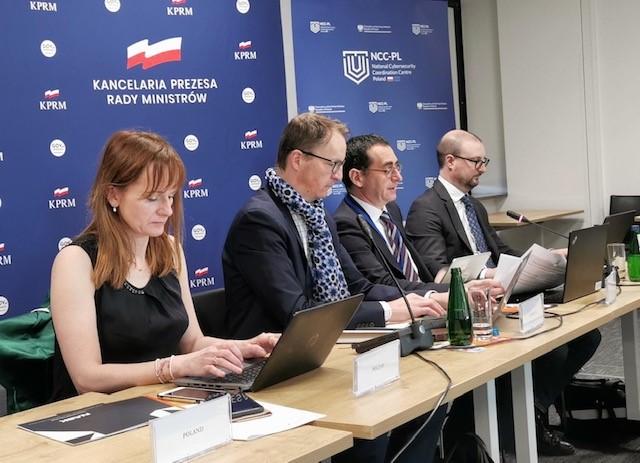
The Governing Board of the European Cybersecurity Competence Centre (ECCC) met in Warsaw (Poland) on 16-17 March to discuss matters relating to the priorities and operations of the Centre. This was preceded by a meeting of the Network of National Coordination Centres (NCCs).
In particular, the Board adopted the Strategic Agenda of the Center, which identifies cybersecurity investment priorities, namely:
- strengthen its leadership and strategic autonomy by developing the Union’s research, academic, societal, technological and industrial cybersecurity capacities and capabilities
- support the Union’s technological capacities, capabilities and skills in relation to the resilience of the infrastructure of network and information systems, including critical infrastructure and commonly used hardware and software in the Union
- increase the global competitiveness of the Union’s cybersecurity industry with a strong focus on SMEs and startups, ensure high cybersecurity standards and competitiveness
To achieve this, the ECCC and its Network of (NCCs) will implement by 2027 a series of measures, namely:
- to fund European SMEs through a coordinated cascade funding mechanism via NCCs and national co-financing,
- to support and grown the cybersecurity professional workforce in both quantity and quality, including through the standardisation and certification of cybersecurity skills and investments in education and training of cybersecurity professionals
- to develop and implement an efficient and coherent action plan to strength the research, development and innovation expertise and competitiveness of the EU cybersecurity community.
Towards the aims above, the Center will manage some of the funding dedicated to cybersecurity in the Digital Europe Programme and Horizon Europe programme, as well as funding from the Member States. A call for proposals for over 176 MEUR under the Digital Europe Programme has recently closed and the evaluation of the proposals is ongoing.
The Governing Board also took stock of progress of several NCCs’ Working Groups focusing on aspects such as the cybersecurity community, cyber skills, support to Ukraine, the network of NCCs or the Strategy Agenda of the Centre.
Finally, the interim Executive Director, Miguel Gonzalez Sancho, reported on the status of the practical establishment of the ECCC in Bucharest, including ongoing recruitments and the future building of the Centre.
The next Board will take place in Bucharest (Romania), the seat of the Centre, before summer break.
Background
The European Cybersecurity Competence Centre (ECCC) aims to increase Europe’s cybersecurity technology and industrial capacities and competitiveness, working together with a Network of National Coordination Centres (NCCs) aiming to build a strong cybersecurity Community.
The Centre and the Network will pool resources from the EU ( Digital Europe and Horizon Europe Programmes), its Member States, as well industry, academia and other stakeholders, to improve Europe’s cybersecurity capacities and strategic autonomy.
In 2021-2022 the EU made calls for proposals for more than €300 million in topics such as cyber threat intelligence, cybersecurity upgrades in SMEs, cyber in the health sector, cyber secured hardware and operating systems, or training and skills.
The Governing Board of the Centre is composed of representatives from the EU Member States (27 members), the Commission (2 members) and the European cybersecurity agency-ENISA (1 permanent observer). In February of 2022, the Governing Board elected Pascal Steichen, from Luxembourg, as its Chair, and Katarzyna Prusak-Gorniak, from Poland, as its Vice-Chair. The European Commission is running the Centre until it can operate fully independently, with Miguel González Sancho currently serving as Interim Executive Director of the Centre.
For more information on the Centre, including future funding and job opportunities, follow the Centre on Twitter and on the web.
Details
- Publication date
- 17 March 2023
- Author
- Directorate-General for Communications Networks, Content and Technology